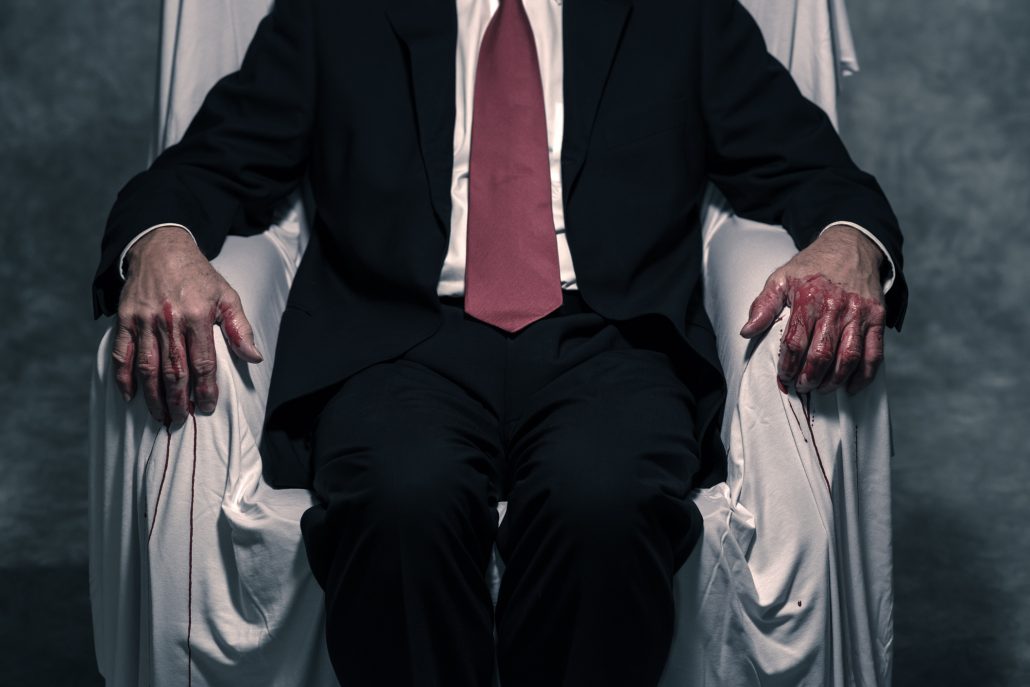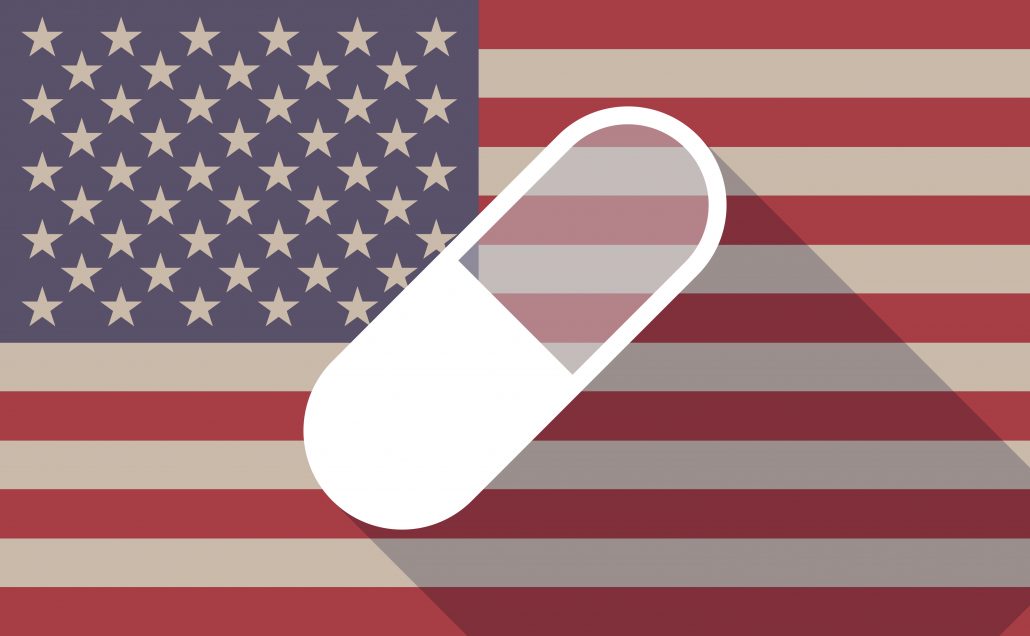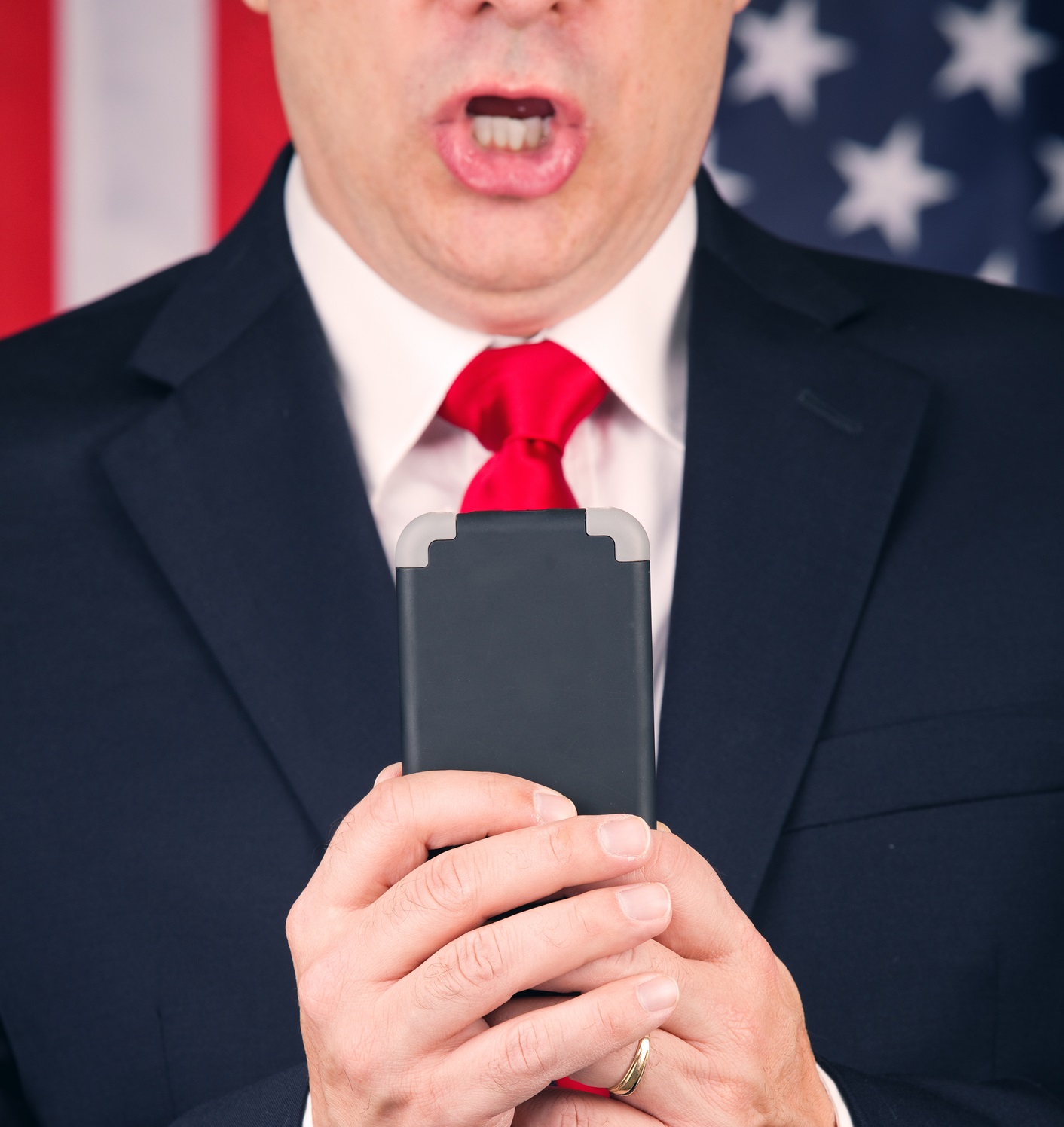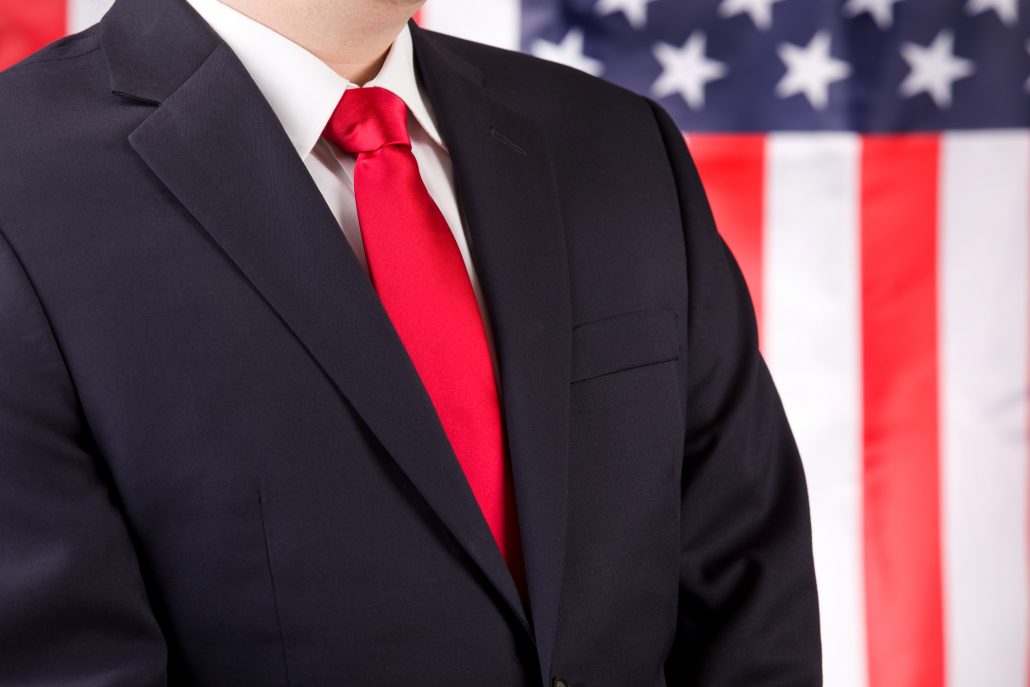by Justin Mckibben | Oct 30, 2017 | Drug Abuse, Fentanyl, Fentanyl, News, Prescription Drugs, Synthetic Drugs

In December of 2016, the Palm Partners Recovery Center blog covered a story about how federal prosecutors were bringing racketeering charges against several employees of Insys Therapeutics Inc. The initial report and the controversy that followed was a profound moment considering criminal charges are rarely ever brought against pharmaceutical companies. Now it seems that even more the corporate drug dealers who helped create the opioid crisis in America are going to be finding themselves under serious scrutiny for their unethical practices.
Last week President Trump declared the opioid epidemic a public health emergency. That very same day, as if to accent the severity of the crisis and the unignorable need for change, the co-founder of Insys Therapeutics Inc. himself was arrested on fraud and racketeering charges.
Insys Therapeutics CEO Taking a Fall
John Kapoor is the former CEO of Insys Therapeutics; a founding father of one of the most prominent opioid manufacturing companies in America. As of last week, Kapoor is reported to be charged with conspiring to push the company’s signature drug for unacceptable uses through a series of bribes and kickbacks.
The drug Kapoor and his company are accused of pushing just happens to be one of the most dangerous opioids on the market, which has contributed to countless deaths across the country over the years- fentanyl.
The brand name for the product made by Insys Therapeutics Inc is Subsys. This extremely potent compound transmits the synthetic opioid fentanyl in spray form. As an opioid analgesic, people use Subsys by spraying it under the tongue for quick absorption of potent fentanyl. Technically, this drug is supposed to only be used for treating cancer patients suffering from severe pain. But according to prosecutors that is very far from the sales strategy Kapoor and his executives were using.
With recent reports showing that approximately 64,000 Americans died last year from drug overdose, and an estimated 20,100 overdose deaths linked to synthetic opioids like fentanyl, how many of those lives were impacted by the drug Insys forced onto the market with bribes?
According to the prosecution, Kapoor and several other former high-ranking executives at the company colluded to bribe doctors to write-
“- large numbers of prescriptions for the patients, most of whom were not diagnosed with cancer.”
They also allegedly-
“- conspired to mislead and defraud health insurance providers who were reluctant to approve payment for the drug when it was prescribed for non-cancer patients.”
How did they do all this?
The Insidious Work of Insys Therapeutics Inc
Back in 2016, there was the discussion of six former executives and sales-managers from Insys Therapeutics Inc. being arrested. The charges, according to the Justice Department, included:
- Conspiring to defraud health insurers
- Conspiring to bribe doctors into needlessly prescribing Subsys, the company’s fentanyl painkiller
The scam is allegedly a long list of kickback schemes, sham speaking programs, and illegitimate gifts or services.
Sham Speaking
Allegedly, doctors and nurses were paid to attend dinners at high-end restaurants. These dinners were disguised as ‘speaker programs’ that were actually described as gatherings of friends and co-workers who had no power to prescribe medications. Supposed ‘speakers’ were paid fees of up to several thousand dollars for attending these exclusive outings.
One healthcare provider reportedly received an illegal kickback to the tune of $83,000!
All of this money to bribe doctors and other healthcare professionals to prescribe Subsys, even when inappropriate. So not only were they pressuring doctors to use their product over alternatives, but also to prescribe a dangerous and potentially fatal opioid to people who didn’t even need it.
Country-Wide Con-Artists
Other stories written about in Forbes include cases in:
In 2015 a nurse practitioner pleaded guilty to violating a federal anti-kickback statute by taking money from Insys to prescribe the drug to Medicare patients who did not have cancer.
A former Insys sales representative also pleaded guilty to a conspiracy to violate the anti-kickback statute by paying two doctors to prescribe the drug.
The state has filed multiple claims against Insys Therapeutics involving the pressuring prescriptions of Subsys for unapproved uses.
Doctors who have worked with the company are being investigated by states including:
-
New York
-
Michigan
-
Florida
-
Kansas
-
New Hampshire
-
Rhode Island
U.S. attorneys in the Central District of California and the District of Massachusetts are also investigating Insys Therapeutics Inc.
Shady Gifts and Services
The buck doesn’t stop there either. It wasn’t just cash gifts for unethical practices. Insys Therapeutics wanted their partners in crime to get the full effect of their illicit activities.
The company would send its own employees to work in doctor’s offices when the physician prescribed their fentanyl fuming drug to patients. They even hired the relatives of health care providers as a favor to the family for their loyalty to Subsys.
Insurance Fraud
They allegedly even set up a portion of their staff to defraud insurance companies by calling to speak with insurance representatives while posing as doctors. Some allegations state they were even misrepresenting a patients diagnosis to inflate drug sales.
A December of 2016 indictment states that Insys actively worked to defraud insurance companies by setting up the “reimbursement unit” dedicated to obtaining prior authorization from insurers and pharmacy benefit managers.
Other Insys Therapeutics Exes
Kapoor stepped down as chief executive in January. However, he is definitely not the only former Insys Therapeutics executive currently under fire. This is just the tip of a very rocky ice-berg. The indictment from 2016 included:
-
Michael L. Babich
Former CEO and President of the company from Scottsdale, Arizona
-
Alec Burlakoff
Former Vice President of Sales from Charlotte, North Carolina
-
Richard M. Simon
Former National Director of Sales from Seal Beach, California
-
Sunrise Lee
Former Regional Sales Director from Bryant City, Michigan
-
Joseph A. Rowan
Former Regional Sales Director from Panama City, Florida
-
Michael J. Gurry
Former Vice President of Managed Markets from Scottsdale, Arizona
On January 5, 2017, all of these defendants appeared in federal court for their initial appearance and arraignment. Each has pled not guilty and been released on conditions approved by the court. A Status Conference hearing followed on September 12, 2017 that is the first of many to be held over several months. That day Massachusetts federal judge set a trial date for October 15, 2018, for the 6 executives.
For now, we have to wait and see if any of the dirty laundries from these alleged white-collar criminals come out in the wash.
Holding Big Pharma Accountable
For a long time, Big Pharma companies have been using unlawful and corrupt tactics for marketing and distribution, which many now see has brought with it some great devastation to communities across the nation. Now, during an opioid crisis that has claimed tens of thousands of lives a year, for several years, these discretions are finally catching up to those accused of corporate greed. The DEA, FBI and Justice Department, along with several state officials and district attorneys, are now aggressively pursuing charges against Big Pharma operators who have a connection to some of the most dangerous and widely abused narcotics on the market.
The acting U.S. Attorney William D. Weinreb said in a statement,
“In the midst of a nationwide opioid epidemic that has reached crisis proportions, Mr. Kapoor and his company stand accused of bribing doctors to overprescribe a potent opioid and committing fraud on insurance companies solely for profit.
“Today’s arrest and charges reflect our ongoing efforts to attack the opioid crisis from all angles,”
Kapoor was arrested in Arizona and his indictment was filed in federal court in Boston. Prosecutors say the charge of conspiracy to violate the anti-kickback law carries the possibility of up to five years in prison. However, the charges of conspiracy to commit racketeering and conspiracy to commit mail and wire fraud each carry a maximum sentence of up to 20 years in prison. Needless to say, Mr. Kapoor is in for a fight.
But many are still wondering if these executives will truly be held accountable? And truthfully, is it even enough at this point? Even if proven to be indirectly contributing to the opioid epidemic, how could anyone ever know how many lives were damaged or lost because the powerful played around with lethal prescription drugs to line their pockets?
For more important information on the dangers of prescription drugs, download our FREE E-BOOK “Big Secrets of Big Pharma: Why They Secretly Hope You Get Hooked”
DOWNLOAD FREE E-BOOK
With recent reports showing that approximately 64,000 Americans died last year from drug overdose, and an estimated 20,100 overdose deaths linked to synthetic opioids like fentanyl, how many of those lives were impacted by drugs like Subsys being forced onto the market with bribes?
More needs to be done to stop Big Pharma companies like Insys Therapeutics Inc from exploiting the system and putting the lives of millions of Americans at risk. And not just the middle-men should be accountable, but also those sitting comfortably at the top these industries. At least this is a start. But for the individual, it all starts with taking action. Getting safe and effective treatment can not just save a life, but help someone build a foundation for a better one. If you or someone you love is struggling, please call toll-free now. We want to help.
CALL NOW 1-888-922-5398
by Justin Mckibben | Oct 17, 2017 | Drug Policy, News, Opioids, Prescription Drugs, Recovery, Stigma

Back in August, the Commission on Combating Drug Addiction and the Opioid Crisis began urging President Trump to declare a national public health emergency to combat the opioid crisis that has crippled countless communities around America. While the President did soon enough say that he believed the opioid epidemic was indeed a national emergency, the actual official process has yet to begin. However, just this week news broke that President Trump will soon formally declare the “national emergency” status of the opioid crisis.
Reports indicate President Trump plans to make the official declaration next week. It seems appropriate following the explosive exposé following the story on ’60 Minutes’ of former DEA agent Joe Rannazzisi pointing a finger at Big Pharma companies, Congress, and lobbyists for fueling the opioid epidemic.
In fact, Republican Representative Tom Marino, who was the top pick for the Trump administrations Drug Czar, was name-dropped in a less than flattering light in the ’60 Minutes’ piece. Reports today now show Marino has withdrawn from consideration following the story.
So what does this newest revelation mean for combatting the opioid crisis?
Raising Awareness
One of the initial reasons for declaring a national emergency is pretty straight-forward; raising awareness. Not that we don’t see enough shocking news stories or warnings from local officials being issued in various states, but more attention on the issue will help channel more resources into actually helping address it.
As the commission states in their report:
“It would also awaken every American to this simple fact: if this scourge has not found you or your family yet, without bold action by everyone, it soon will,”
“You, Mr. President, are the only person who can bring this type of intensity to the emergency, and we believe you have the will to do so and to do so immediately.”
When the President of the United States says something is a priority, people take notice. Regardless of whether people always agree on politics, when we can all get behind a major issue and put effort into a more inclusive conversation, there is a better chance more can be done.
Overcoming Addiction Stigma
One of the most important aspects of fighting addiction is overcoming the addiction stigma itself. Many people who are suffering do not get the help they need because they are afraid of the stereotypes associated with drug abuse. A lot of people still doubt what the majority of the medical and scientific communities have adopted as fact; that addiction is a health issue, not a moral failing.
By declaring the opioid crisis a national emergency, President Trump has an opportunity to promote education along with public awareness. The more we can help people to understand how addiction affects the mind and body, the better odds we have of supporting those struggling with compassionate and effective treatment options.
Funding for Fighting Opioids
Perhaps one of the biggest hopes for many addiction recovery advocates is that by President Trump declaring the opioid crisis a national emergency he will influence lawmakers to allocate more funding to resources combatting addiction.
A federal declaration would also allow the government to pull funding from other areas as well, such as funding used for the Public Health Emergency Fund, or even the federal Disaster Relief Fund. So while America has been struck pretty hard by hurricanes and natural disasters, some of this same funding may end up going toward creating addiction resources.
One thing many are hoping is that these new funds will also go to promoting more addiction treatment options across the country. Some states may pursue incentives for performance-based enhanced care management (ECM) program, like one recently implemented in New Jersey. Others may put those resources into prevention and education initiatives.
One thing should seem pretty clear; treatment options should be a priority. We already know we cannot arrest our way out of this problem. The War on Drugs did not work, and many do not expect it will now either. With President Trump declaring the national emergency, hopefully, the new effort will go into protecting mental health and substance abuse parity with healthcare and insurance providers. If we have more ways to help those already desperately in need, we could see a better chance for a way out.
With the CDC stating an estimated 91 Americans dying every single day from opioid-related death, which many experts believe is grossly underreported, helping more people fighting opioid addiction find a way out is crucial. However, we should not wait on politicians, health officials or anyone else to fix it. Recovery takes action. If you or someone you love is struggling, please call toll-free now. We want to help.
CALL NOW 1-888-922-5398
by Justin Mckibben | Aug 9, 2017 | Drug Policy, Law Enforcement, Naloxone, Prescription Drugs, Recovery, Stigma

President Donald Trump promised a “major briefing” via his favorite publication… twitter… this Tuesday morning. Many people were expecting something big related to the request from the national opioid commission to declare a state of emergency for the opioid epidemic. But alas, this was not the case. President Trump made no announcement on new policies in the fight against opioids. Instead, he made a comment that sounds a lot like Nancy Reagan telling everyone to ‘just say no’ in the 80s, and we all know how well that worked.
This is concerning to so many who put stock in President Trump when he said he would make fighting the opioid epidemic a priority. Yet, so many feel like he is absent on the subject when it comes to establishing any initiatives or taking proactive action.
President Trump vowed on Tuesday that the United States will “win” the battle against the heroin and opioid outbreak. But instead of presenting a plan to support and reinforce treatment initiatives and other programs, the focus on his comments were claims to-
“- protect innocent citizens from drug dealers that poison our communities.”
The closer we look at the administration’s latest actions, the more it seems like this administration prefers the failed ‘just say no’ and War on Drugs mentality than actually offering a progressive answer.
President Trump Says Drugs are Bad
Probably the one part people are most annoyed with is when President Trump stated:
“Maybe by talking to youth and telling them ‘no good, really bad for you in every way’, but if they don’t start it will never be a problem.”
I feel like most of us did a good old fashion face-palm on this one… because DUH! We know drugs are bad (thanks Mr. Mackey) and we know talking to kids about drugs matters. That is why programs like Drug Abuse Resistance Education (D.A.R.E.) have been around for decades. However, we also know from D.A.R.E.’s track record that this kind of program hasn’t been particularly successful at stopping drug use either!
While giving this latest briefing from his 17 day “working vacation” from his golf club in Bedminster, New Jersey, President Trump also stated:
“The best way to prevent drug addiction and overdose is to prevent people from abusing drugs in the first place,”
“I’m confident that by working with our health care and law enforcement experts, we will fight this deadly epidemic and the United States will win.”
Now while it is true that addiction can’t technically develop if someone never uses substances, this still sounds a lot like ‘just say no’, which we all know does not work as a drug policy. Prevention is key and maybe with more detail about Trump’s plan on how to prevent drug use we could see where this comment is going. But as it stands, these comments just sound like more of the same.
After all, Trump’s Attorney General Jeff Session does seem to agree with the old War on Drugs tactics. Why, we may never know.
It is incredibly frustrating to advocates and experts involved in the addiction recovery community, as well as for citizens all across the nation who are hoping for some real change. Why- because we know that ‘just say know’ failed. We tried to just tell kids that drugs are bad for them and not to do them, but the epidemic still happened! And needless to say, just saying no is not going to help us with the overwhelming rates of addiction, overdose and death that we are already dealing with.
Far beyond that, understanding and overcoming addiction is about a lot more than just knowing its bad for you.
Is President Trump Ignoring Suggestions?
The president himself appointed the opioid commission, chaired by Republican New Jersey Governor Chris Christie. Only a week ago the panel urged President Trump to “declare a national emergency”, citing the tragically high overdose and death rates across the country. In the report issued by the opioid commission there were numerous recommendations that many were hopeful would come to fruition as soon as possible. Among these recommendations there is:
- Expanding treatment facilities across the country
- Educating and equipping doctors about the proper way to prescribe pain medication
- Equipping all police officers with the anti-overdose remedy Naloxone
All of these suggestions seem like they would make a pretty big impact on the current predicament. Empowering treatment providers in more of the U.S. can help get more addicts off the streets and introduce them to the option of getting well. Putting more power in the hands of doctors to safely and effectively provide medications could help reduce the staggeringly high prescription drug abuse rates. Giving the overdose antidote to more first responders could save so many more lives.
And yet, President Trump did not address a single one of these recommendations, or event suggest that one of them was on his current to-do list.
Instead, he went back to his go-to argument for solving all of our problems… our borders. Again, President Trump doesn’t give any indication as to planning for expanding treatment or Naloxone access. Nope… he just promises to be-
“-very, very strong on our Southern border.”
Did he talk about training doctors in order to avoid issues with prescription drugs? Nope. Instead he claimed:
“We’re talking to China, where certain forms of man-made drug comes in and it is bad,”
Yes, again we understand… ‘drugs are bad… mmmkay.’ But seriously, this is not the first time that this administration has shifted the focus from helping treat those who have suffered from drug addiction to ‘tough on crime’ tactics and border security. But time and time again experts in law enforcement and drug policy insist that the answer is not in attacking the supply side, but in treating those who suffer now.
Health and Human Services Secretary Tom Price told reporters they haven’t taken anything off the table, but that they believe at this point the necessary resources and focus can be addressed without an official declaration. However, looking at what declaring the emergency would have done, why would doing it be a bad thing?
Why a National Emergency Matters
The reality is, we are all well aware of the severity of the opioid epidemic by now. However, declaring a national emergency does actually count for something.
If President Trump were to declare a national emergency it would speak volumes to the scope of the issue on a national platform. Also, coming from one of the highest authorities in the nation, it would have opened the door to making those other suggestions happen.
According to Juliet Sorensen, a professor at Northwestern University Pritzker School of Law, Trump’s declaration could have:
- Allowed the executive branch to direct federal funds to expand treatment facilities
- President Trump would have also been able to direct funds to equip police with Naloxone
- Allowed him to provide the FBI, the Drug Enforcement Agency and other law enforcement agencies with more money to focus on the manufacturers and smugglers of dangerous drugs like fentanyl
But maybe one of the biggest impacts it could have had would have been on the rest of the House and the Senate. Fighting the opioid epidemic is one of the very few topics in politics right now that has bipartisan congressional support. Declaring a national emergency could give President Trump the perfect opportunity to unite both sides of the aisle and create cooperation and momentum.
This is a vital issue that should absolutely be a priority. Therefore, the idea of returning to an archaic, outdated philosophy concerning drug use is annoying at the least and potentially terrifying for some. The epidemic shows no sign of stopping anytime soon. Maybe it is time to do more than just tell people drugs are bad. If we want to do some good, we need to support each other with compassion.
Palm Healthcare Company values compassionate, comprehensive and innovative holistic treatment opportunities to help save the lives of those that are suffering, and we encourage professionals, community leaders and family members to get involved in helping change lives for the better. If you or someone you love is struggling with substance abuse or addiction, please call toll-free now.
CALL NOW 1-888-922-5398





